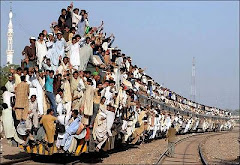Today Tonight 16.9.10
Reporter Helen Wellings.
It's the great disappearing act. Our skills, machinery, companies, products, homes and significant parts of our land are being sold off at a rapid rate.
Most people prefer to buy Australian, but it's often impossible to tell dinky-di goods from imported ones because our government allows confusing labelling.
"Product of Australia" means the food was grown here, while "Made in Australia" means the produce can come from overseas, but just be processed or transformed here.
Lynne Wilkinson of Ausbuy, which supports Australian owned companies and products says of the top 100 food brands, only 20 are controlled by Australian interests.
"Foreign companies use koalas, Australian flags, maps even the word Australian to infer they are Australian," Lynne said.
Tracking down an Aussie product can be like finding a needle in a haystack.
"Frozen vegies, there is not much from Australia, this is from China, and these onions are from Poland. They are made in NZ and the peas are from the UK and sold for $2 a pack," Lynne said.
"You have a major brand like Dairy Farmers which represents 54 per cent of our dairy industry, it's been taken over by the Japanese. Golden Circle, that was taken over by Heinz. CSR sugar is being taken over by a Singaporean company".
90 per cent of products on supermarket shelves are imported or owned by foreign companies. Australia's now importing more than $1.5 billion worth of fruit and vegetables per year, increasing 5 per cent every year. Bonds has moved production overseas and Arnotts is now owned by the big American, Campbells.
"Uncle Tobys is owned by Nestle the Swiss company, Just Juice is the Berri company which is owned by Kirren, the Japanese. It says "Made in Australia" and its got fully imported ingredients," Lynne said.
And the latest shock? The historical Gunnedah property, Kurrumbede, Dorothea Mackellar's homestead, which inspired her to write our most famous Australian poem, My country, has just been sold to a Japanese company for $14 million. That's right, 2600 hectares of our precious heritage is about to be turned into a coalmine.
Jo Kellock, CEO of the Council of Textile & Fashion Industries of Australia says our skills and jobs are rapidly disappearing offshore.
"It is very serious, we are very concerned about what's happened to the Australian-made content in the fashion market, it is hard to find those clothes," Jo said.
"The majority of our clothes are coming from China, then Vietnam, Bangladesh and Cambodia, and in the Third World countries they are entitled to bring those goods in duty-free, and that drives the price down in the Australian market."
We're now importing one billion articles of clothing a year.
Cue, a great Australian fashion success story, was founded 42 years ago by the same family that still owns it. CEO David Kesby says they'll never be tempted to sell out.
"One of the great reasons they love Cue is because we are still predominantly Australian made. We've got suppliers that have worked with us over 30 years. By making here in Australia we get to deliver in store, much quicker than all our contemporaries, the latest international fashions trends," David said.
"Basically all our pants, dresses and jackets are made in Australia. There is a booming backlash against imports in many quarters.
Back to basics is the concept of Aussie Farmers Direct. It takes orders online and delivers fresh food, including meat, straight from the farm to your table. Chief Executive Braedon Lord says you buy local produce and cut out the middle man and save a packet.
Thursday, September 16, 2010
Subscribe to:
Post Comments (Atom)





































No comments:
Post a Comment
Note: Only a member of this blog may post a comment.